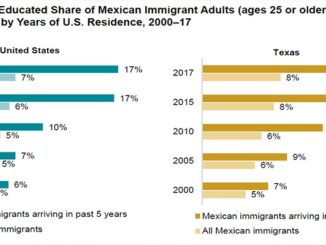
One of the tools in the federal government’s immigration enforcement kit is the detainer — a written request by Immigration and Customs Enforcement agents to a state prison or local jail to hold a person suspected of being in the country illegally for up to 48 hours beyond his or her scheduled release. ICE makes the requests to give immigration agents time to go pick up the person for possible deportation.
But, as a federal judge recently told the federal government — again — holding someone without charge or a court order violates the 4th Amendment protection against unreasonable seizure.
The most recent decision came in a lawsuit over the Los Angeles County Sheriff’s Department’s involvement in the Secure Communities program, which the Obama administration created and then abandoned, but which the Trump administration has revived. (The county no longer takes part in Secure Communities.) Under the program, local jails cooperate with ICE in identifying people held in county jails who might be in the country illegally, and then hold those inmates for up to 48 hours if ICE sends a detainer requesting it.
That is wrong. Anti-immigration folks tend to stuff their fingers in their ears when this part of the issue comes up, but every person physically present in the U.S. enjoys the protections of the Constitution regardless of immigration status. A tourist accused of shoplifting is entitled to the same due process rights as an American citizen, including access to a government-paid lawyer if the accused can’t afford one. Neither a citizen nor an immigrant should be incarcerated if there are no charges against them.
Immigration law is primarily a civil matter, not a criminal matter. Although it is a crime to sneak into the U.S. without permission, simply being here without a visa or other document is not a criminal act. Notably, many undocumented immigrants enter the country legally but then never leave, a violation of civil codes. And local police do not have the authority to jail someone over a suspected civil violation. A detainer letter from ICE is a nonbinding request and falls far short of the authority a court order. So every time a local jail or state prison honors an ICE detainer that is not based on an arrest warrant or court order and fails to release an inmate who has qualified for bail or served out a court-imposed sentence, local officials violate the inmate’s constitutional rights.
The federal government knows this, and local governments should too, because violating constitutional rights is not just wrong, it’s expensive for taxpayers. A 2014 ruling in Oregon cost Clackamas County $30,100 plus Maria Miranda-Olivares’ legal costs because the county jail, honoring an ICE detainer, refused to let her sister post $500 bail set by a county judge. (Miranda-Olivares was accused of violating a restraining order.) In 2014, Utah’s Salt Lake County paid former inmate Enrique Uroza $75,000 to settle a lawsuit after the sheriff, acting on an immigration detainer, refused to release Uroza even though the defendant had posted bail on an unrelated criminal charge. Again, the prolonged detention the result of a criminal accusation, but because of the civil immigration request, which has no legal force. In fact, there have been at least 14 such cases since 2011, according to the American Civil Liberties Union.
We’d hope the government would learn from these decisions — or that the courts would issue an injunction that could be enforced nationwide — and stop such blatant violations of the 4thAmendment. This is not part of the so-called “sanctuary city” policies the Trump administration likes to complain about. No person, regardless of legal status, should be deprived of freedom purely on the say-so of a government agency.
It should also be noted that a number of people jailed under ICE detainers are, in fact, U.S. citizens or people living here with permission. NPR reported that from 2007 to 2017, about 700 U.S. citizens were held in jails or prisons after their release dates because ICE investigators misidentified them as noncitizens without legal status (another 820 were picked up elsewhere and held in immigration detention centers until they could prove their citizenship). Ending the use of warrantless detainers would help reduce that.



